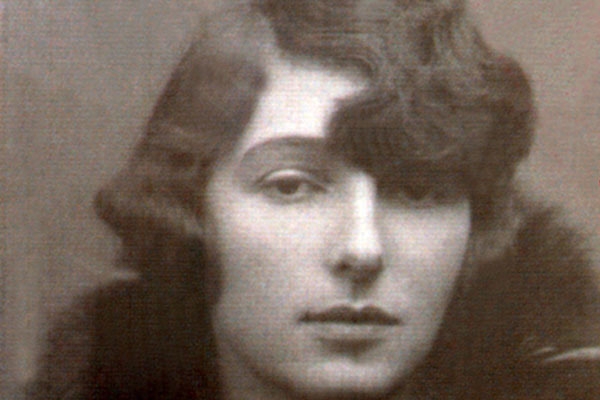I suppose I may be one of the few people still alive to have known Krystyna Skarbek (aka Christine Granville), though, perhaps regrettably, not as well as many others in her brilliant, stormy but eventually tragic life. Today she would have been over 100.
Of all the women agents who risked their lives in Nazi-occupied Europe in the second world war, Polish-born Krystyna must surely rate as one of the bravest of the brave. As they used to say in army vernacular, the George Medal (which was about as close to a VC as a foreign national could get), the OBE and the Croix de Guerre did not exactly ‘come up with the rations’.
Churchill is alleged to have rated Skarbek his ‘favourite spy’. The reason? In spring 1941 she passed minute details to London of Hitler’s plans for Barbarossa, the invasion of Russia. Churchill forwarded them on to Stalin, who promptly binned them.
Krystyna’s father was from the lesser Polish aristocracy, but her mother was Jewish (she was eventually swallowed up by the Holocaust) — a fact that would have made Krystyna’s repeated journeys under the noses of the Gestapo infinitely more dangerous.
Six times she trekked and skied across the Tatras, ‘exfiltrating’ high-risk Polish refugees into neutral Hungary, accompanied by her one-legged, long-term lover, Andrzej Kowerski (aka Andrew Kennedy). Seldom conducting an operation without a lover (proof of the 007 notion that sex and extreme peril often make for inseparable bed-mates), Krystyna’s reckless exploits smacked more of the age of Baroness d’Orczy than of the vile century of Heinrich Himmler.
Several of the witnesses in Clare Mulley’s scintillating and moving book, such as the late Paddy Leigh Fermor, testify to the fact that Krystyna did indeed thrive, quite irrationally, on danger. With her ‘fierce, almost blind pride,’ she reminded one British officer of the Polish cavalry that had charged Nazi Panzers in 1939. Arrested in Hungary, on one occasion she bit her tongue so hard as to draw blood, persuading the interrogators that she had TB. They released her.
Krystyna’s most legendary exploit came in summer 1944, in southern France, pending the Allied invasion. Her British boss (and also, naturally, lover), Francis Cammaerts (DSO, Croix de Guerre, Légion d’Honneur), one of SOE’s top operatives, had fallen into a trap and was awaiting imminent execution. She located his cell by humming ‘Frankie and Johnny’. Cammaerts responded by singing the refrain. Then Krystyna presented herself boldly to the milice officer holding Cammaerts, as a British agent—and a niece of General Montgomery, no less — sent to obtain the release of the prisoners. The invasion, she persuaded Cammaert’s captors, was but hours away and terrible reprisals would be exacted if the prisoners were killed. Coupled with Krystyna’s devastating charm, the ruse worked. All three agents walked free.
I first met Krystyna in her Polish coterie at Cairo’s famous Gezira Club just after the war. To a callow, 21-year-old captain struggling in the lower echelons of MI5, Krystyna — then in her late thirties — was an ‘older woman’, to be respected and admired from a distance. The stresses of war had had their effect. As she sat in her deckchair I remember noticing how contused and battered were her famously elegant long legs. Yet — and how vividly I can still recall it — there came across an exceptional life-force, the quite irresistible but uncontrived charm to which all who ever met her would attest.
One SOE captain (Douglas Dodds Parker, a future MP) reckoned that Krystyna ‘had some kind of magic in her that men could not resist’. (According to Clare Mulley, her seductive appeal even extended to the fiercest German guard dogs, who would nuzzle at her feet.)
Yet all Krystyna’s courage and charm failed to avert the wretched end Fate had in store for her. After 1945, shamefully we Brits seemed dedicated to punishing the heroic Poles at every turn for their wartime loyalty. Unable to find any employment, an impoverished Krystyna was forced to work as a cleaner on a cruise ship. There she rashly encouraged an Irish steward, Dennis Muldowney, who became an obsessive stalker. In 1952 he stabbed her to death in the cheap South Kensington hotel that was now her home. What Paddy Leigh Fermor once
called ‘her fatal gift of inspiring love’ finally led to her death.
The devoted Andrzej Kowerski survived her to die of cancer in Munich in December 1988, aged 78. In accordance with his last wishes, his ashes were flown to London and interred with Krystyna’s. I would meet him occasionally when I was a foreign correspondent in postwar Germany. Behind the façade of a pink-skinned, bibulous, often riotously funny Pole, there was an unmistakable deep sadness. As Mulley indicates, he recognised that Krystyna had only ever had one true love: Poland.
This is a meticulously researched but also highly readable account of Krystyna’s heroic but unfulfilled and deeply tragic life, without any attempt at gloss. It is one of most exciting books I’ve read this year.





Comments